Showing posts from category development.
-
Climate Change Not the Only Environmental Problem, Says U.K. Environment Secretary
›May 22, 2009 // By Rachel Weisshaar The Copenhagen climate conference will be “the most important gathering in human history,” said the United Kingdom’s environment secretary, Hilary Benn, at the Wilson Center on May 14, 2009 (full text of speech). While “an agreement on cutting emissions would be the biggest single step we could take to safeguard [natural] resources,” said Benn, “even such an agreement will not—indeed cannot—encompass all of the things we need to do to safeguard our environment.”
The Copenhagen climate conference will be “the most important gathering in human history,” said the United Kingdom’s environment secretary, Hilary Benn, at the Wilson Center on May 14, 2009 (full text of speech). While “an agreement on cutting emissions would be the biggest single step we could take to safeguard [natural] resources,” said Benn, “even such an agreement will not—indeed cannot—encompass all of the things we need to do to safeguard our environment.”
“The most glaring threat is that of dangerous climate change. But it is not the only example of the problems we create when we exploit the world’s resources unsustainably,” explained Benn.
“The spiraling price of food in 2008 was a wake-up call. Riots threatened political stability. Export bans threatened world trade. Wheat prices doubled, rice quadrupled. And another 75 million people were threatened by poverty and hunger,” Benn said.
Although food prices have fallen recently, continuing growth in the global population—expected to reach at least 9 billion by 2050—and rising standards of living in poor and middle-income countries mean that world food production will need to double by 2050. This demand for food—especially more meat and dairy products—will put increasing pressure on land and water. Conflicts could erupt over these scarce resources if they are not managed properly, Benn warned.
Already, wealthy governments and corporations are buying farmland in Africa and other parts of the developing world—leading to unrest. Widespread anger at South Korean company Daewoo’s proposal to purchase more than half of Madagascar’s arable land contributed to the ouster of former Malagasy President Marc Ravalomanana.
Benn highlighted an apparent Catch-22: “Development is the best way of lowering the rate of population growth and so, in turn, lowering the pressure on resources. But development also increases income, and therefore demand.”
The way to free ourselves from this cycle, Benn said, is to create an environmentally sustainable economy, so that economic development does not degrade the environment. He proposed:- Starting to build tomorrow’s sustainable economy even as we work to contain today’s economic crisis;
- Changing the incentives in our economies—through regulation and financial inducements—to promote environmentally sustainable choices;
- Creating the jobs that will power this new sustainable economy; and
- Working together as an international community to address water scarcity, food security, and biodiversity loss.
Benn called for U.S. leadership on climate change and other environmental issues: “We need America to apply all of its great energy to the task we, together, face.”
Photo: Hilary Benn. Courtesy of Dave Hawxhurst and the Wilson Center. -
Projecting Population: A Risky Business
›May 6, 2009 // By Sean Peoples Assumptions about human behavior drive our knowledge of future global population trends. Demographers analyze population and other survey data in order to forecast trends, but uncertainty colors these projections.
Assumptions about human behavior drive our knowledge of future global population trends. Demographers analyze population and other survey data in order to forecast trends, but uncertainty colors these projections.
In the 2008 Revision of World Population Prospects, the UN Population Division projects that our planet will grow to 9.15 billion people by 2050. Yet this medium-variant projection is just one of several possible scenarios released in this latest round of number crunching. The low- and high-variant projections—7.96 billion and 10.5 billion, respectively—could instead become reality, given slight shifts in fertility rates in developing countries, where growth rates remain higher than in more developed nations. Although both developing and developed nations are susceptible to shifts in fertility rates, uncertainties are greater in the developing world due to factors such as inconsistent data collection, weak health system infrastructure, and low government capacity.
Elizabeth Leahy and I investigate the underlying assumptions behind population projections in an article in the May/June edition of World Watch magazine. By comparing three of the leading population-forecasting institutions, we find that small variations in assumptions can lead to significant differences in projections.
Uganda’s demographic outlook is a prime example. Between 1960 and 2005, Uganda’s population grew by 22 million people, while the country’s fertility rate fell by less than 3 percent. The UN medium-variant population projection assumes the country will buck precedent and experience a 61 percent fertility rate decline between 2005 and 2050, resulting in a population of 91 million people. The U.S. Census Bureau, on the other hand, assumes a less drastic fertility decline and projects a population of 128 million people by 2050. The International Institute for Applied Systems Analysis (IIASA), an Austrian institution that projects population on a regional basis, recently revised its population projections to reflect greater growth in sub-Saharan Africa due to stalling fertility decline and stagnant educational-attainment rates.
Fertility rates rarely decline when governments have not made the proper investments in health and education. The UN medium-variant projection is commonly cited as an inevitable scenario; few people know that one of its underlying assumptions is that access to modern contraception will continue to expand. Without real-world development investments to match these assumptions, a very different scenario could easily materialize. By empowering women, bolstering access to education, and providing comprehensive family-planning services to citizens, governments and policymakers can translate these assumptions into reality.
-
Pakistan’s Daunting—and Deteriorating—Demographic Challenge
› Every day it seems the headlines bring new worries about the future of Pakistan. But among the many challenges confronting the nation—including a growing Taliban insurgency—one significant problem remains largely undiscussed: its rapidly expanding population.
Every day it seems the headlines bring new worries about the future of Pakistan. But among the many challenges confronting the nation—including a growing Taliban insurgency—one significant problem remains largely undiscussed: its rapidly expanding population.
Consider this: Pakistan’s population nearly quadrupled from 50 million in 1960 to 180 million today. It’s expected to add another 66 million people—nearly the entire population of Iran—in the next 15 years. UN projections predict that by the late 2030s, Pakistan will become the fourth most populous country in the world, behind India, China, and the United States.
And believe it or not, the demographic outlook for Pakistan got bleaker in recent weeks. The new medium-range UN projections for Pakistan’s total population have been raised to 335 million for 2050—45 million higher than the UN projection just two years ago. Why the change? Because birth rates aren’t falling as had been predicted—women in Pakistan have an average of four children—and unmet need for family planning remains high.
The case of education provides a snapshot of how these demographics affect Pakistan, from basic quality-of-life issues to the country’s overall stability. Even though the official literacy rate in Pakistan has increased from about 18 percent to 50 percent since 1970, the number of illiterate people has simultaneously jumped from 28 million to 48 million. The literacy rate for women stands at a shockingly low 35 percent.
As public schools have become increasingly overcrowded, more parents have turned to madrasas in an attempt to educate their children—or at least their sons. It’s no secret that some of Pakistan’s madrasas have ties to radical religious and terrorist-affiliated organizations.
So what does this portend for the future?
Even assuming large infusions of assistance from the United States, Pakistan’s public school system will become even more overwhelmed in the years ahead. Building enough schools and hiring enough teachers would be daunting in any country, let alone one facing as many challenges as Pakistan. It seems likely that enrollments in madrasas will swell, and more children will face a future with no schooling whatsoever. Clearly, this is not a recipe for a more stable and peaceful Pakistan.
Pakistan’s rapid population growth is not inevitable, however. A key driver is lack of access to family planning, which is symptomatic of the overall poor status of women and girls. More than 25 percent of Pakistani women have an unmet need for family planning—meaning the demand is clearly there—and nothing in the Koran prohibits its usage. In other majority-Muslim nations, such as Algeria, Bangladesh, and Iran, family planning has been prioritized and is widely used.
Unfortunately, family planning programs in Pakistan and many developing countries have suffered from both inattention and funding cuts in recent years. Traditionally, the United States has been a major source of funding and technical assistance, but since 1995, U.S. international family planning assistance has fallen 35 percent (adjusted for inflation), even as demand has increased.
Today, more than 200 million women—many of them in the most impoverished parts of the world—have an unmet need for family planning. In countries like Pakistan, the resulting rapid population growth makes it increasingly difficult to provide sufficient education, health care, housing, and employment—and depletes land, water, fisheries, and other vital natural resources.
The Obama administration recently proposed a new U.S. assistance strategy for Pakistan—and a key component is a significant increase in development and economic assistance. Let’s hope it will include an increase for family planning. It would be a wise investment in a brighter, more stable future—for Pakistan and for the world.
Tod Preston is vice president for U.S. government relations at Population Action International.
Photo: Children in Jinnah Colony, Karachi, Pakistan. Courtesy of Flickr user NB77. -
VIDEO: Leona D’Agnes on Population, Health, and Environment
›April 15, 2009 // By Wilson Center StaffIntegrated population-health-environment (PHE) programs “are very cost-effective ways” to develop “community capacity—to strengthen their know-how, and bring…in some additional appropriate technologies” to promote livelihoods, says Leona D’Agnes in this short expert analysis from the Environmental Change and Security Program.
“It doesn’t require a lot of money, but it does require capacity building and being able to motivate communities and help them to understand that it is not just the government that’s responsible for their development. Their own food security and environmental security rests with their abilities to manage their assets, their natural resources, to plan their families, and make sure their children finish school.”
In this expert analysis, D’Agnes, currently a consultant to CDM International on PHE and forestry in Nepal, discusses the linkages between population, health, and environment involved in her work as a technical adviser for PATH Foundation Philippines and its IPOPCORM project.
To learn more about population, health, and environment issues, please visit our PHE page. -
Water’s Role in International Development
› A mark of a good event is that it generates further debate, questions, and ideas. “Water and International Development: A Dialogue,” a recent discussion at The Johns Hopkins University School for Advanced International Studies, was such an event. Geoff Dabelko, director of the Environment Change and Security Program at the Wilson Center, and Aaron Salzberg, special coordinator for water resources at the U.S. Department of State, went head-to-head to discuss water’s role in international development.
A mark of a good event is that it generates further debate, questions, and ideas. “Water and International Development: A Dialogue,” a recent discussion at The Johns Hopkins University School for Advanced International Studies, was such an event. Geoff Dabelko, director of the Environment Change and Security Program at the Wilson Center, and Aaron Salzberg, special coordinator for water resources at the U.S. Department of State, went head-to-head to discuss water’s role in international development.
The discussion between Dabelko and Salzberg touched upon many issues I ran into while trying to program Water for the Poor Act funding while working as a natural resources adviser for the Economic Growth Office at the U.S. Agency for International Development (USAID) mission in Ghana. Once we received the funding, there was an intra-office debate among:- People who wanted to make drip-irrigation work we were already funding fit the Water for the Poor Act definition;
- People who thought the funds should be spent on a narrow set of water and sanitation interventions, such as borehole/latrine construction and water purification tablets; and
- People who thought the funds should be spent on the larger-scale water and sanitation infrastructure that Ghana so desperately needs.
USAID mission offices have specific strategic priorities and associated operational plans, which dictate the makeup of the staff employed at any given time. In this case, there was no one water specialist who could take on this important task. I had an M.S. in water management, so I was passed the baton. If the Water for the Poor Act is going to have a significant impact, USAID missions must have the technical capacity to assimilate the funds.
Dabelko and Salzburg’s discussion brought up even more questions for me: How can the United States reconcile its bilateral earmark funding for water with the growing trend toward donor coordination—for instance, under the 2005 Paris Declaration, or, in the case of Ghana, the Multi-Donor Budget Support fund, which encourages donors to contribute direct financial support to the Ghanaian government to implement its Growth and Poverty Reduction Strategy? Is there a need to have water specialists assigned to USAID missions, rather than relying on specialists in Washington, D.C.? How can we make municipal financing mechanisms for infrastructure more attractive to Western funders and host-country governments? Although Dabelko and Salzburg might not have had all the answers to these questions, I’m heartened that they and other water experts are tackling the tough issues.
David Bonnardeaux is a freelance consultant on rural development and natural resource management for the World Bank, USAID, and CARE, among others. He is also an amateur photographer (www.davidbonnardeaux.smugmug.com). His next port of call is Vietnam.
Photos: Top: Boy pumping water, Volta Region, Ghana. Bottom: Girl collecting water from lake, Volta Region, Ghana. Courtesy of David Bonnardeaux. -
Reading Radar– A Weekly Roundup
›April 10, 2009 // By Wilson Center StaffUncharted Waters: The U.S. Navy and Navigating Climate Change, a working paper by the Center for a New American Security, examines climate change’s implications for the U.S. Navy.
Defense Secretary Robert Gates recently chose Admiral James Stavridis, the former head of U.S. Southern Command known for his “smart power”/“sustainable security” approach, to lead U.S. European Command.
An Economist article highlights some of the linkages between water and political instability, energy, food, demography, and climate change.
The Governance of Nature and the Nature of Governance: Policy That Works for Biodiversity and Livelihoods, a report by the International Institute for Environment and Development, explores the success of local-level conservation. It features case studies from India, Tanzania, and Peru.
Sheila Herrling of the Center for Global Development argues that the USAID Administrator should become a permanent member of the National Security Council.
The Nation wonders whether nations go to war over water; Nature (subscription required) and Slate say “no.” ECSP has weighed in on this issue in the past.
Lisa Friedman of ClimateWire reports on Bangladesh’s attempts to prepare for the impacts of climate change. -
VIDEO: Steven Sinding on ‘Making the Case for U.S. International Family Planning Assistance’
›April 8, 2009 // By Wilson Center Staff“If countries cash in on this window of opportunity” opened by falling birth rates, “it makes a big difference in their chance for development,” says Steven Sinding in this short expert analysis from the Environmental Change and Security Program. “While it is not a sufficient condition for economic growth, decreasing fertility is certainly a necessary condition for doing so.”
Sinding, a senior scholar at the Guttmacher Institute, discusses the recent report Making the Case for U.S. International Family Planning Assistance, which he co-authored, and argues that family-planning programs are central to addressing today’s social, economic, and environmental challenges.
To learn more, please see the complete video, as well as transcripts, PowerPoints, and a summary, from the March 17, 2009, Wilson Center launch of the report. -
Former USAID Population Directors Argue for Major Boost in Family Planning Funding
›April 7, 2009 // By Gib Clarke“We know how to do family planning, we know what it costs, and we know that it works,” said Joseph Speidel of the University of California, San Francisco, at the launch event for Making the Case for U.S. International Family Planning Assistance sponsored by the Wilson Center’s Environmental Change and Security Program on March 17, 2009. The key missing element, he said, is political will.
Speidel and his co-authors—all former directors of the U.S. Agency for International Development’s (USAID) Office of Population and Reproductive Health—argued that Congress should more than double spending on international family planning in the coming years for health, economic, and environmental reasons.
The Big Ask
Making the Case recommends that the USAID population budget be increased from $457 million in FY2008 to $1.2 billion in FY2010, growing further to $1.5 billion in FY2014. According to the speakers, this increase is necessary to:- Meet the “enormous pent-up and growing unmet need for family planning”;
- Stabilize population growth rates, especially in Africa; and
- Achieve the Millennium Development Goal of universal access to reproductive health services.
 Duff Gillespie of the Johns Hopkins Bloomberg School of Public Health showed that U.S. funding for family planning has been stagnant in real dollars since the late 1960s, despite the fact that there are 200 million women with an unmet need for family planning. Without champions within USAID and the Obama administration, he said, the dollar amounts appropriated for family planning are unlikely to increase.
Duff Gillespie of the Johns Hopkins Bloomberg School of Public Health showed that U.S. funding for family planning has been stagnant in real dollars since the late 1960s, despite the fact that there are 200 million women with an unmet need for family planning. Without champions within USAID and the Obama administration, he said, the dollar amounts appropriated for family planning are unlikely to increase.
Speidel explained that growing populations, combined with stable or increasing rates of consumption, contribute to climate change. The current rate of population growth is unsustainable, given Earth’s finite natural resources. Changes in behavior and technology—such as eating less meat or using clean energy—could improve environmental outcomes.
Absolute numbers still matter, however: Although population growth rates have declined, the global population continues to grow. Addressing the nearly one-half of all pregnancies that are unplanned would bring great health and environmental benefits, said Speidel. According to Steven Sinding of the Guttmacher Institute, although most economists and demographers agree that economic growth leads to lower fertility, whether lower fertility reduces poverty is still a matter of much debate. But the “demographic dividend” generated by slowing population growth is a reality, he argued, and countries can benefit from it if their institutions are prepared to take advantage of it. For example, a USAID study found that one dollar invested in family planning in Zambia saved four dollars in other development areas.
According to Steven Sinding of the Guttmacher Institute, although most economists and demographers agree that economic growth leads to lower fertility, whether lower fertility reduces poverty is still a matter of much debate. But the “demographic dividend” generated by slowing population growth is a reality, he argued, and countries can benefit from it if their institutions are prepared to take advantage of it. For example, a USAID study found that one dollar invested in family planning in Zambia saved four dollars in other development areas.
A Broader Base of Support Ruth Levine of the Center for Global Development urged the authors to avoid “preaching to the choir.” One way to engage other constituencies interested in demographic issues is to broaden the scope of “population” to include not only family planning, but also migration, urbanization, and other key demographic issues.
Ruth Levine of the Center for Global Development urged the authors to avoid “preaching to the choir.” One way to engage other constituencies interested in demographic issues is to broaden the scope of “population” to include not only family planning, but also migration, urbanization, and other key demographic issues.
In addition, convincing World Bank economists, especially the Bank’s next president, of the connections between declining fertility and poverty reduction should be a priority, said Levine, because developing countries put a lot of stock in the Bank’s advice.
By Gib Clarke
Edited by Rachel Weisshaar
Photos: From top to bottom, Joseph Speidel, Duff Gillespie, Steven Sinding, and Ruth Levine. Courtesy of Dave Hawxhurst and the Wilson Center.


 The Copenhagen climate conference will be “the most important gathering in human history,” said the United Kingdom’s environment secretary, Hilary Benn, at the Wilson Center on May 14, 2009 (
The Copenhagen climate conference will be “the most important gathering in human history,” said the United Kingdom’s environment secretary, Hilary Benn, at the Wilson Center on May 14, 2009 (
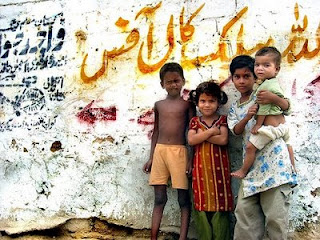 Every day it seems the headlines bring new worries about the future of Pakistan. But among the many challenges confronting the nation—including a
Every day it seems the headlines bring new worries about the future of Pakistan. But among the many challenges confronting the nation—including a 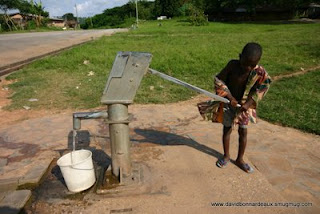
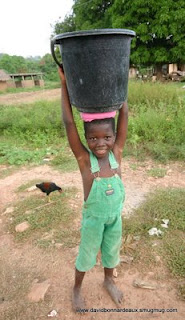
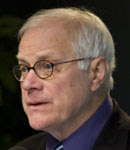 Duff Gillespie of the Johns Hopkins Bloomberg School of Public Health showed that U.S. funding for family planning has been stagnant in real dollars since the late 1960s, despite the fact that there are 200 million women with an unmet need for family planning. Without champions within USAID and the Obama administration, he said, the dollar amounts appropriated for family planning are unlikely to increase.
Duff Gillespie of the Johns Hopkins Bloomberg School of Public Health showed that U.S. funding for family planning has been stagnant in real dollars since the late 1960s, despite the fact that there are 200 million women with an unmet need for family planning. Without champions within USAID and the Obama administration, he said, the dollar amounts appropriated for family planning are unlikely to increase.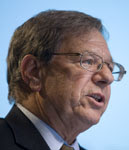 According to Steven Sinding of the Guttmacher Institute, although most economists and demographers agree that economic growth leads to lower fertility,
According to Steven Sinding of the Guttmacher Institute, although most economists and demographers agree that economic growth leads to lower fertility, 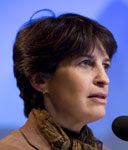 Ruth Levine of the Center for Global Development urged the authors to avoid “preaching to the choir.” One way to engage other constituencies interested in demographic issues is to broaden the scope of “population” to include not only family planning, but also
Ruth Levine of the Center for Global Development urged the authors to avoid “preaching to the choir.” One way to engage other constituencies interested in demographic issues is to broaden the scope of “population” to include not only family planning, but also 

